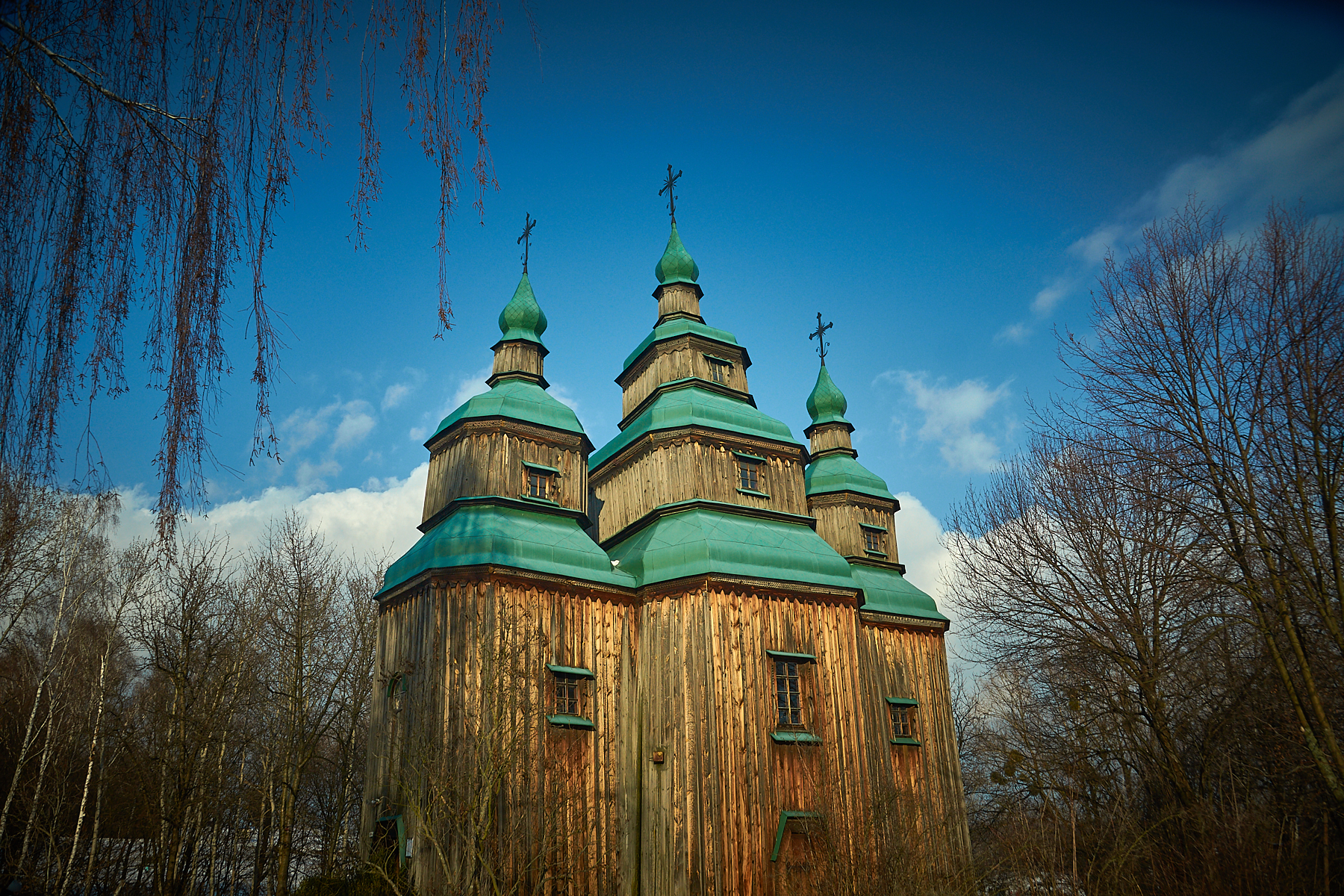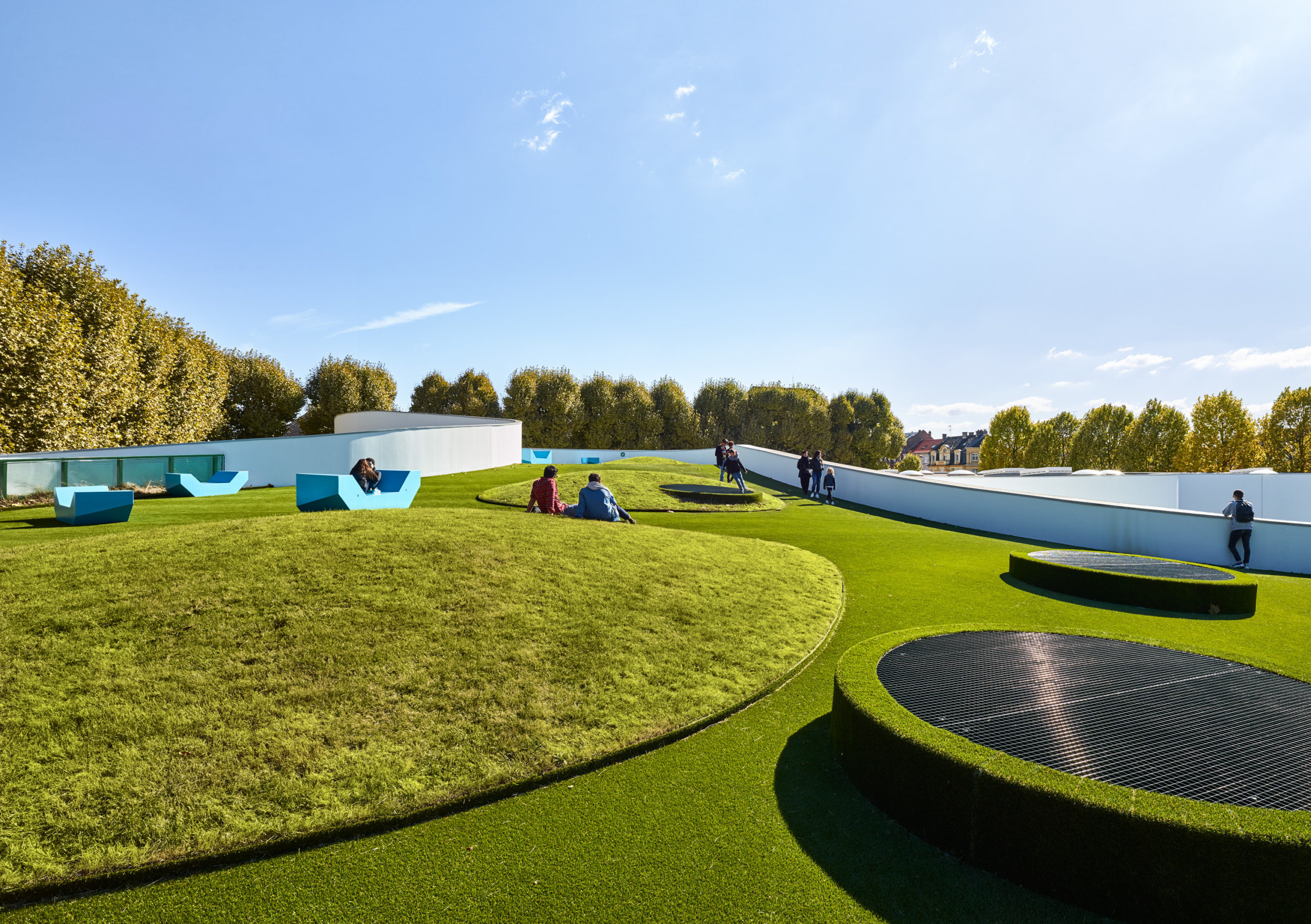Architects: Want to have your project featured? Showcase your work by uploading projects to Architizer and sign up for our inspirational newsletters.
More than a month has passed since the beginning of Russia’s invasion of Ukraine. Families have been separated, homes have been destroyed, and far too many innocent lives have been lost. Today we are witnessing Europe’s fastest-growing refugee crisis since WWII and the total destruction of a historically-rich nation. As the country continues to come under gunfire, Ukraine’s cityscape becomes unrecognizable. Although the loss of buildings pales in comparison to the loss of life, there is a horrific and deliberate erasure of history and national identity taking place. The country’s heritage architecture dating back to ancient times is constantly under threat.
14 Charities Supporting Ukraine →
Ukraine is home to seven World Heritage sites and so many other incredible architectural works, monuments and cultural spaces. Dozens of buildings have fallen under the Russian line of fire and there is growing concern that the country’s most prized monuments may be next. UNESCO’s Director-General, Audrey Azoulay, has recently called for the protection of Ukraine’s monuments and heritage sites. However, as the attacks continue, there is a growing fear around the world that Ukraine’s valued heritage architecture will not be spared.
Jesus Christ statue being taken out of Armenian Cathedral of Lviv, #Ukraine, to be stored in a bunker for protection. The last time it was taken out was during WWII. pic.twitter.com/mx2YCB4gAT
— KyivPost (@KyivPost) March 6, 2022
“We must safeguard the cultural heritage in Ukraine, as a testimony of the past but also as a catalyst for peace and cohesion for the future, which the international community has a duty to protect and preserve.” – Audrey Azoulay, UNESCO Director-General
From Kyiv’s Saint Sophia Cathedral built in the 11th century, the Kyiv-Pechersk Lavra monastery built in 1051, to the constructivist gem Derzhprom (otherwise known as the House of State Industry), there are countless historically-rich sites sitting on an active war zone. The war has prompted cultural workers to store monuments for safekeeping, such as the century-old statue of Jesus Christ found in the Armenian Cathedral in Lviv. While some public monuments and statues have been insulated with fireproof wrap, such coverings can only do so much.
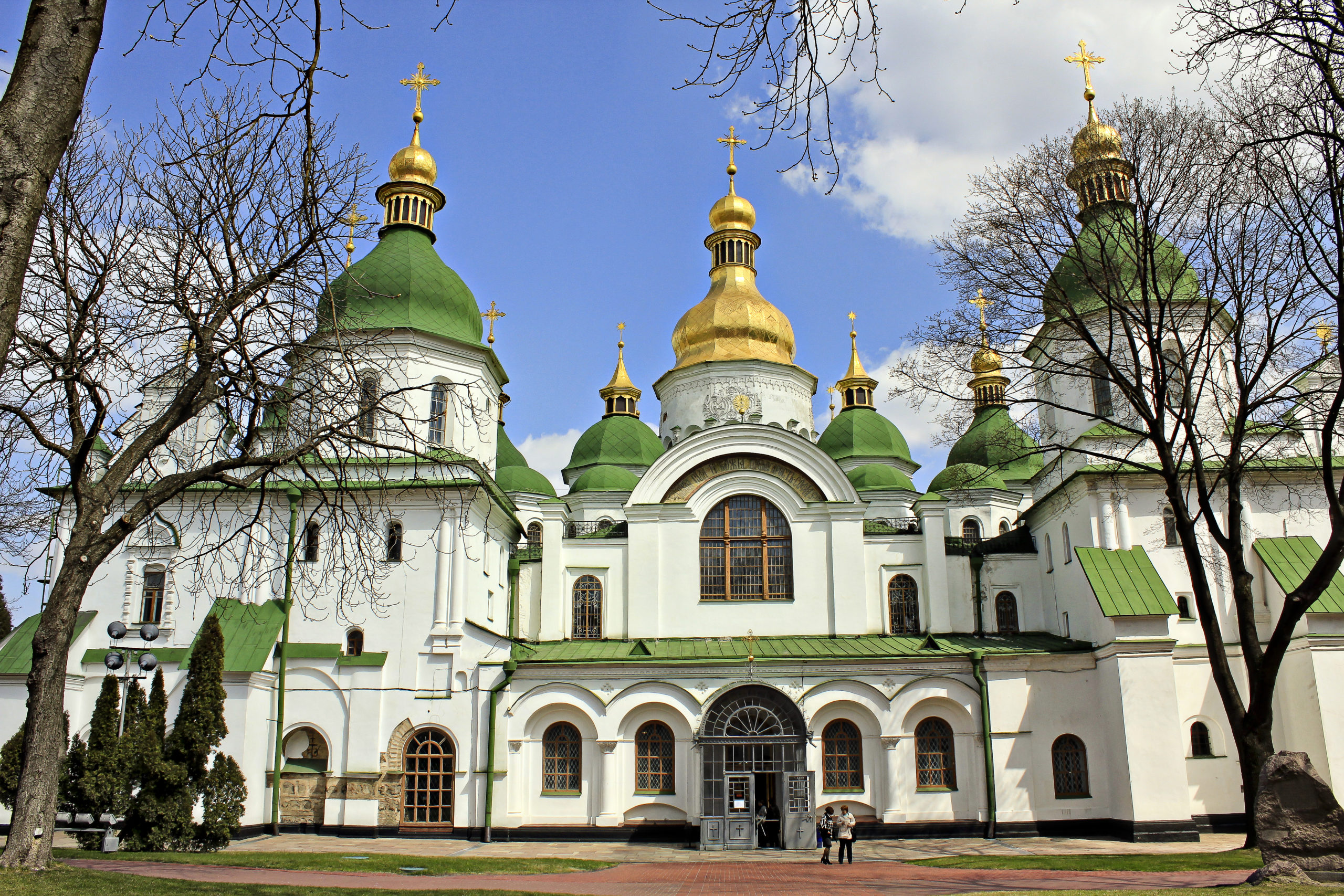
St. Sophia Cathedral, Kyiv, Ukraine. Photo by Magalie L’Abbé, 2011, Flickr.
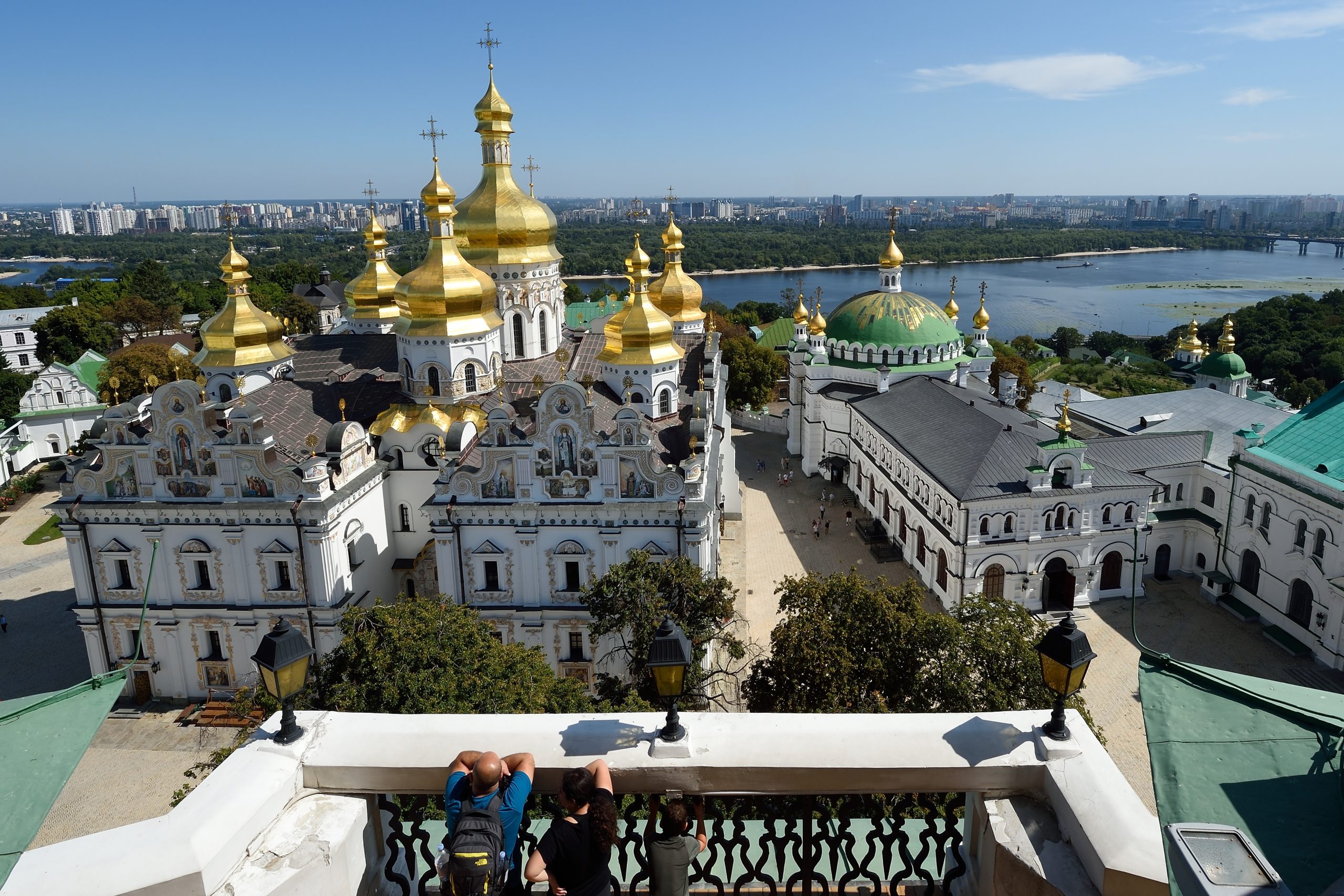
Kyiv-Pechersk Lavra, Kyiv, Ukraine. Photo by Tim Adams, 2019, Flickr.
On March 16, the Donetsk Academic Regional Drama Theater was tragically bombed during a Russian attack on the city of Mariupol. In past weeks, the theater had served as a shelter for Mariupol residents that lost their homes to shelling. Thousands of Ukrainians — mostly women, children and the elderly — sought refuge in the theater’s bomb shelter. The building is located in the city of Mariupol, which has now been besieged by Russian troops. At the time, taking refuge in the theater was safer than leaving the surrounded city. Mariupol citizens tried to warn Russian forces of the young lives present in the building by visibly writing “children” in Russian outside the edifice. Hoping the sign would deter bombing of the site, the theater was tragically bombed and resulted in 300 casualties.
Mariupol’s Donetsk Academic Regional Theater sat prominently adjacent to the City Square. Inaugurated in 1887, the theater was built in the monumental classicist style. The site received a facelift in 1960 by architects A. Krylov and S. Malyshenko and in 2007, was named an official academic institution by Ukraine’s Ministry of Culture and Tourism. The theater was built of Crimean Inkerman graystone and its stucco-adorned façade was filled with motifs of metallurgists and farmers.
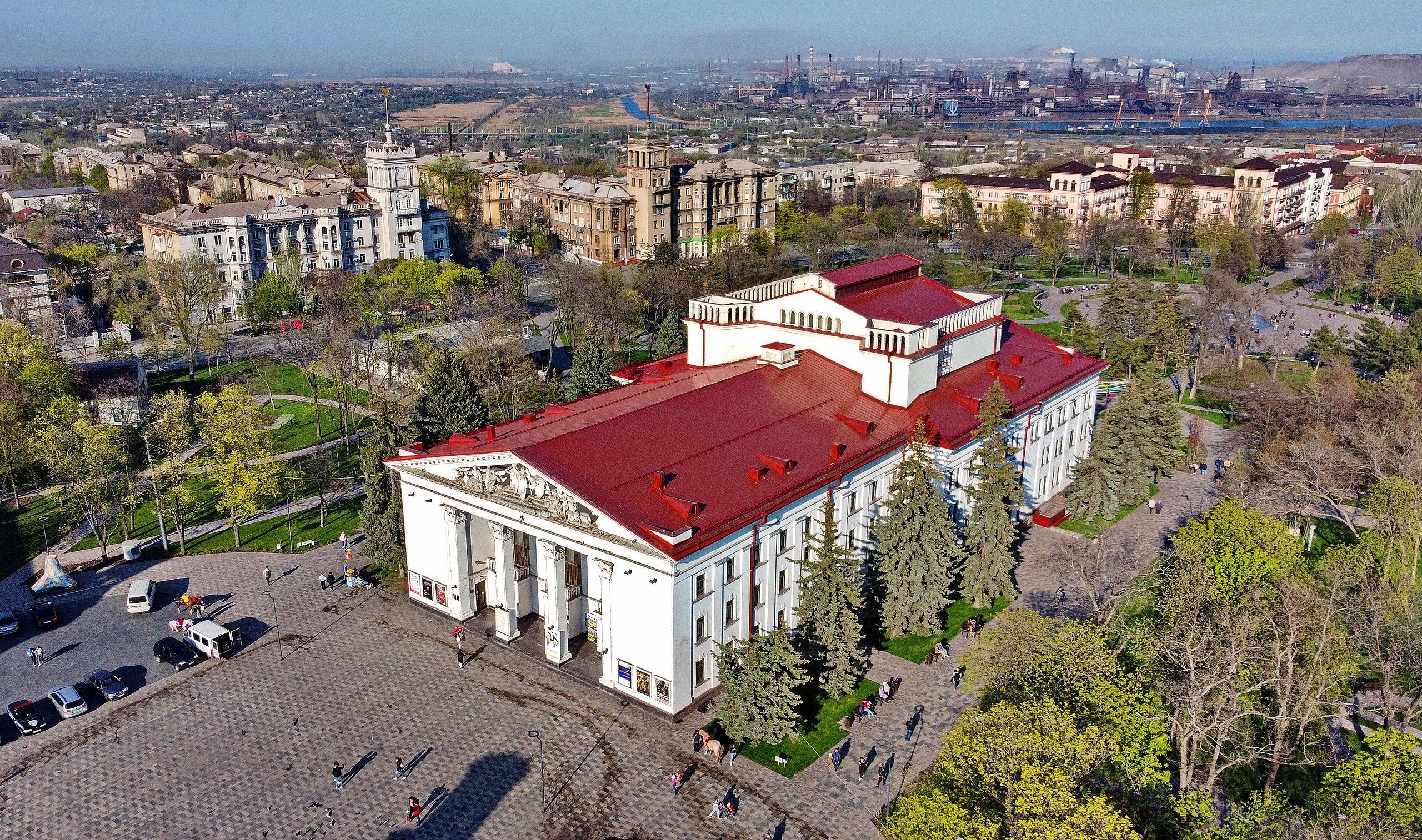
Donetsk Academic Regional Theater, Mariupol, Ukraine. Photo by Oleksandr Malyon, 2021, Wikipedia.
‼️ Mariupol Drama Theater before the bombing. Giant white inscriptions on the ground say: "CHILDREN". Russians knew there are civilians in the theater. #GenocideOfUkrainians pic.twitter.com/c7dY7qqqsv
— Roman Hryshchuk (@grishchukroma) March 16, 2022
Following the atrocious attack, Italy’s Minister of Culture Dario Franceschini publicly announced on Twitter that its nation has pledged to help rebuild the Theater of Mariupol. Franceschini highlights that the destruction of this theater is not just a loss for the Ukrainian people; it is a global loss deeply felt by people around the world.
With every bomb and gunfire, Ukrainian culture is being destroyed and its history erased. However, the loss does not solely impact the Ukrainian people; this attack on Ukraine is also the destruction of world heritage. Cultural artifacts know no borders. From the Neolithic period, the Byzantine era to modern-day civilization, the country is filled with the history of various cultures; what is more, citizens of the world share a common global history.
Italy is ready to rebuild the Theatre of #Mariupol. The cabinet of Ministers has approved my proposal to offer #Ukraine the resources and means to rebuild it as soon as possible. Theaters of all countries belong to the whole humanity #worldheritage pic.twitter.com/FPictnEloy
— Dario Franceschini (@dariofrance) March 17, 2022
“The material cultural heritage of the world is our common heritage, the identity and inspiration for all humanity. Cultural heritage has the power to unite us and is critical for achieving peace.” – James Cuno, President and Chief Executive Director, J Paul Getty Trust
A global effort is without a doubt needed to rebuild Ukraine and help restore its historic legacy. More than fifty cultural sites have been recorded damaged by Russian attacks. Religious buildings, historical monuments, museums — so much has been lost, it is nearly impossible to quantify. This is expecially true of sites in Mariupol and Kherson that are currently besieged by Russian forces. From the Donetsk Academic Regional Theater, the Holocaust memorial in Kyiv, to the Ivankiv Historical and Local History Museum, so much has been lost in just a matter of weeks.
Mariupol
Drama Theater pic.twitter.com/R9UIOAekZp— Volodymyr Omelyan (@V_Omelyan) April 4, 2022
The world is uniting in its efforts to help Ukraine and the Ukrainian people during this tragic time. This unified response will help ease the catastrophes of war and, eventually, aid in rebuilding the country. Numerous charities have been established to help with immediate relief as well as future aid:
14 Charities Supporting Ukraine →
One can only hope the killing of innocent lives and destruction of a nation ends soon. Rebuilding and repairing such a country will not be an easy endeavor, but it is important to remember that the loss of Ukrainian culture is the loss of world heritage.
Architects: Want to have your project featured? Showcase your work by uploading projects to Architizer and sign up for our inspirational newsletters.
